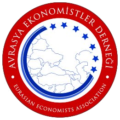
International Conference on Eurasian Economies
11-13 June 2019 – Famagusta, Turkish Republic of Northern Cyprus
Paper properties
Paper ID : 2279
Status : Paper published
Language : English
Topic : Finance and Financial Crises
Presenter: Asst. Prof. Dr. Shahanara Basher
Session : 3A Finance
The Aftermath of Quantitative Easing in Advanced Economies: The Empirical Evidences
The Aftermath of Quantitative Easing in Advanced Economies: The Empirical Evidences
- Prof. Dr. Harun Bal (Çukurova University, Türkiye)
- Asst. Prof. Dr. Shahanara Basher (University of Science and Technology Chittagong, Bangladesh)
- Dr. Abdullahil Mamun (International Islamic University Chittagong, Bangladesh)
Abstract
Quantitative easing (QE), as a measure of unconventional monetary policy (UMP), has been followed by many of the central banks of advanced economies to boost the economy by stimulating investment and consumption. The study identifies the most recent QE programs undertaken by central banks of four major advanced economies, namely, Federal Reserve (Fed), Bank of England (BOE), Bank of Japan (BOJ) and European Central Bank (ECB), and examines its impact on major macroeconomic indicators, namely output growth, inflation, exchange rate indices and stock market indices, employing vector autoregressive (VAR) models. Findings of the study suggest that QE was only favorable for real GDP growth of USA and the development of stock market of euro area. However, such an UMP failed to bring about changes in appropriate directions among the other economic indicators of these advanced economies. QE at an adequate scale to offset the recessionary forces could help achieve the expected results of the policy action. At the same time, policy makers should think over other supplementary measures that can support and expedite the impact of QE in favourable directions to achieve the desired goals of such UMP.
JEL codes:
Bal, Harun, Basher, Shahanara, Mamun, Abdullahil (2019). "The Aftermath of Quantitative Easing in Advanced Economies: The Empirical Evidences" in Proceedings of International Conference of Eurasian Economies 2019, pp.84-97, Famagusta, Turkish Republic of Northern Cyprus.
DOI: https://doi.org/10.36880/C11.02279





